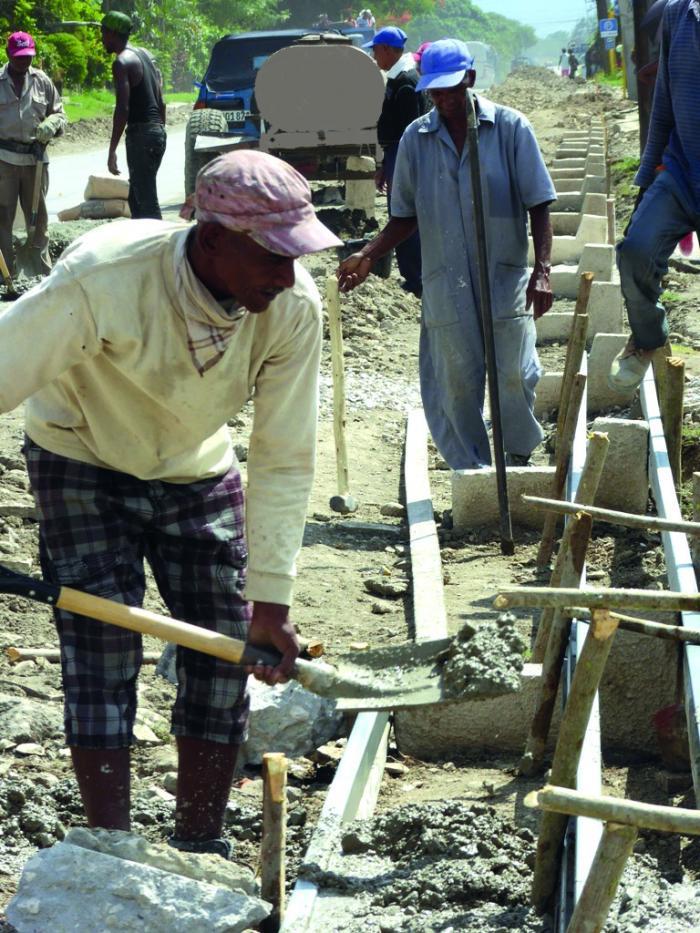 In Cuba, 1,236 communities in vulnerable situations have been identified and 96% of them are in the process of integral transformation. In general, transformation projects aimed at finding solutions to the main problems are being carried out in these communities in order to bring about changes in the lifestyles and ways of life of the people who live in them.
In Cuba, 1,236 communities in vulnerable situations have been identified and 96% of them are in the process of integral transformation. In general, transformation projects aimed at finding solutions to the main problems are being carried out in these communities in order to bring about changes in the lifestyles and ways of life of the people who live in them.
This was announced by the Minister of Labor and Social Security, Marta Elena Feitó Cabrera, in a meeting that took place Wednesday, February 7, in which the work of integral transformation carried out in communities, groups, families, homes and people in vulnerable situations was evaluated. The exchange was led by the First Secretary of the Central Committee of the Communist Party and President of the Republic, Miguel Díaz-Canel Bermúdez.
Deputy Prime Minister Jorge Luis Perdomo Di-Lella considered that the attention in this regard is a priority issue, in the midst of the implementation of all economic measures that have been designed as part of the Government’s projections to correct distortions and boost the economy in 2024.
The defense of social programs in the current economic situation, he said, is to defend socialism, is to defend social justice and, therefore, it is essential to improve this work.
Commenting on the main aspects that took place during the year 2023, the Minister of Labor and Social Security explained that, together with the improvement of the prevention groups in the popular councils, social workers have continued to be added to these tasks, which favors personalized attention to families in vulnerable situations.
The direct and articulated work with the delegates and the institutions located in the district is essential to achieve everything we propose, he emphasized during the exchange, which was led by the member of the Political Bureau and Prime Minister, Manuel Marrero Cruz.
As part of the actions that have been carried out in the communities, he highlighted the incorporation of 25,100 people into employment, 8,020 of whom are young people, and 2,335 into training courses. Likewise, 2,698 young people have returned to school and 1,390 have benefited from the delivery of usufruct land.
With particular regard to mothers with three or more children, Feitó Cabrera emphasized that, at the end of last year, 4 222 had been incorporated into employment and 276 into education; 829 were in job training courses; 2 600 benefited from monetary benefits, both temporary and conditional; 5 398 were given material resources; 573 received housing and 878 were given the capacity to incorporate their children into the children’s circle.
Associated with the protection provided by Social Assistance in these communities, he pointed out that 186,112 families benefited from it in 2023, both with monetary benefits, as well as services or resources.
Among other actions carried out in the communities, he referred to the delivery of subsidies to carry out construction actions; minor repairs in houses and construction of others; eradication of dirt floors; as well as contracts for the acquisition of beds, mattresses, furniture and others.
At the end of the meeting, the President of the Republic valued that, even in the midst of the country’s limitations, work has not ceased in the communities in vulnerable situations, where living conditions have been improved. He mentioned the recovery of medical offices, the rehabilitation of water pipes, the construction of sidewalks and streets where there were none before, the opening of stores, pharmacies, among other works, all this in the midst of a very difficult year for Cuba from the economic point of view.
Edited by Liubis Balart